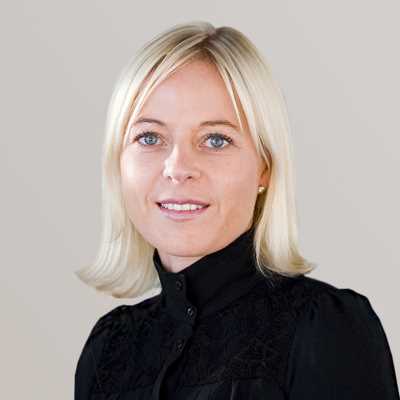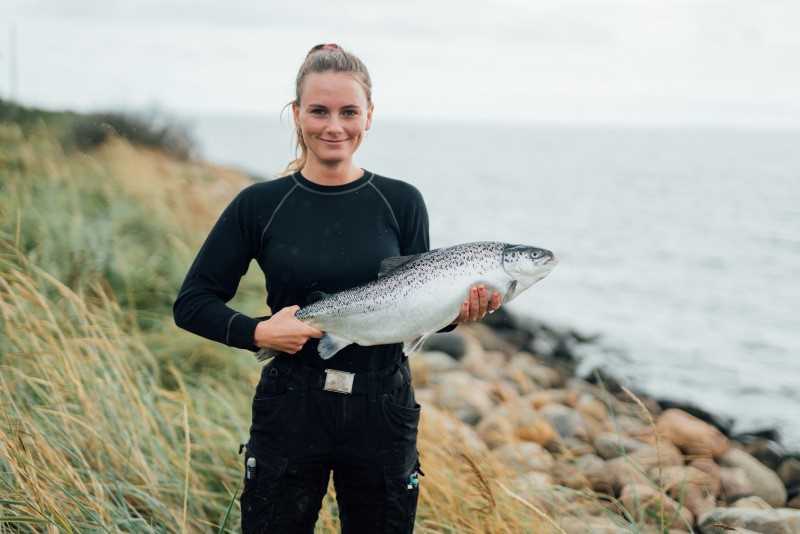Atlantic Sapphire is a high-conviction case in the fund. It has a highly disruptive and innovative business model directly seeking to mitigate the traditional ESG risk exposure and economic externalities facing the fish farming industry. In revolutionising fish farming by bringing it onshore, Atlantic Sapphire seeks to circumvent the traditional and critical ESG risks facing the industry.
The first set of risks relate to operational ESG risk. Traditional fish farms struggle with fish escapees, lice and parasites and the use of antibiotics, to name but a few problems. Second, transport-related emissions are traditionally high in the industry as the fish are caught far away from the end-market where they are consumed.
Circumventing traditional ESG risk
Land-based farming, or the Bluehouse concept, circumvents these crucial ESG risks by building a salmon farm in the biggest final end-market, something that is not possible through conventional salmon farming methods. This not only revolutionises salmon farming, it extends to global protein production in general. The sector struggles with its credentials on a wide range of environmental and social factors such as the use of antibiotics, deforestation, water management, water consumption, emissions, working conditions, animal welfare and food safety.
However, like most relative newcomers in listed equity markets, there are considerable hurdles facing smaller companies when it comes to seeking a balanced and fair ESG assessment and coverage from third parties, even for those seeking to capitalise on ESG-friendly business models.
In the case of Atlantic Sapphire, it was our view that the ESG analysis conducted by the third-party provider, and the quantitative score affixed to the company were flawed. First, it was clear that the third party had not taken the business model of the company into account and instead largely based their ESG risk assessment on the ESG risk exposure of the industry category they had assigned to it (agriculture).
Second, because Atlantic Sapphire is a small cap company, is not yet fully operational and is a recent entry on the global listed equity stage, its ESG disclosure is less extensive than its larger and older peers on some measures. This is interpreted by ESG vendors as a 'Pandora's box' ESG risk, further elevating the supposed ESG risks that investors might face when investing in the company. In our ESG analysis, lack of disclosure is not necessarily 'bad ESG' in the same way that extensive ESG disclosure is not necessarily the same as 'good ESG'.
Flawed third-party ESG analysis
Any enlightened investor deploying fundamental analysis will uncover the significant analytical errors in the approach deployed by the third-party ESG provider and the ESG credentials embedded in the business model of Atlantic Sapphire. As an early investor in the company, we have supported the company through various critical junctures. SKAGEN Kon-Tiki is also one of the largest shareholders in the company, and currently holds an unrealised gain of almost 70% - or NOK 200 million - on its investment in Atlantic Sapphire. This is a significant return for our unit holders from a company that is positively disrupting fish farming in a more sustainable direction.
Engagement pays off
We have engaged both directly with the management of Atlantic Sapphire to understand the different pain points they experienced when seeking to improve external ESG assessments and reviews, as well as directly with the third party data provider to share our arguments as to why we believed their ESG assessment was inaccurate and, in some places, incorrect.
The key analytical error in our view was that the assigned industry ESG exposure risk contributed most significantly to the company level ESG risk. As the business model of Atlantic Sapphire clearly avoids these, it made no sense to penalise the company for not having policies in place to address inapplicable 'industry risks'.
The market capitalisation of the company further compounded the poor ESG Risk Assessment. Following discussions, the ESG data vendor recognised our arguments and recategorized the company from "agricultural industry" to "packaged foods industry". We agree that this is a more accurate industry categorisation for the company and this industry re-classification alone has removed a significant proportion of the third-party vendor perceived ESG risk. The company's risk classification has thus been changed from 'severe' to 'high'.
Naturally, our rationale was not to engage to improve the ESG score, but rather to ensure that the assessment leading to the score was an accurate reflection of the actual risks taken and the company's business model. This is a basic premise for any investor seeking to make informed investment decisions. With the correction in place, we believe the overall ESG risk picture is more accurate as a starting point for improved ESG management and disclosure once the company is fully operational.
The importance of 'do-it-yourself' ESG analysis
The challenges facing disruptive and future-oriented companies like Atlantic Sapphire are yet another example of why it is critical that ESG analysis is done at a fundamental and bottom-up level, which is an approach that SKAGEN has taken since inception. Overreliance on quantitative ESG scoring can lead to a dangerously skewed and misinformed view – for better or worse – about the supposed ESG risks and opportunities facing companies and their business models. Company-specific ESG due diligence and analysis is and will remain essential in order to make meaningful investment decisions.




